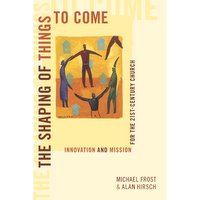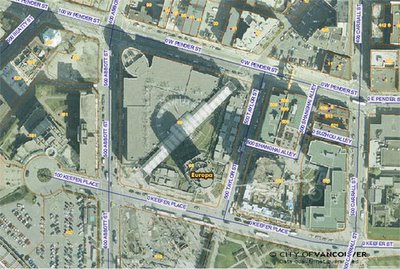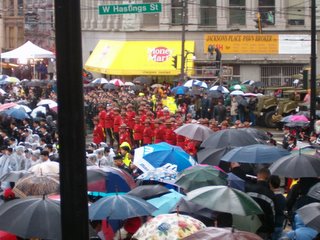I'm in the middle of a couple of days of meetings with a group of Pastors looking at urban ministry in Vancouver. What a great experience to be part of this. I learn so much just from listening to the dialogue around the table.
Tonight we had a presentation by Edwin Kong, the Director of the Chinese Christian Mission of Canada, helping us to understand the issues and realities of Chinese community in Vancouver. Fascinating discussion.
There was one particular comment that really lit me up. He was talking about the desperate need for leadership in the Chinese church, and not for more theologians with M.
Div's or D. Min's, but for Pastors who know how to love people and relate to them at the level of their need. He called it
UBC vs.
BCIT. University training is great, but what is really needed is people who know how to do the hands on, practical stuff in a language that people understand the blue-collar pastor, as opposed to the white-collar theologian.
We have a similar issue right now with trades people in BC. The woodworking company I work for is desperately short of skilled woodworkers and cabinet makers.
BCIT has a great program for that, but the push for years has been for students to go to University.
BCIT and other technical school have been portrayed as second
class. So now we have a frantic shortage of trades
people we need to survive as a community. Ironically, the highly educated
UBC people often have trouble getting a job in their area of expertise.
Back to the church. I believe for
the church to go forward like it needs to for Canada to be really impacted, perhaps we need to rethink the way we do church leadership. The professionalized model of ministry and church that we have bought into needs to be re-examined. Do you really need 4-8 years of specialized training to be an effective pastor? From a pragmatic perspective, can we really ram enough people through that kind of training to have the numbers of leaders that we really need to do what needs to be done? And having spent all that money on education, can we pay them enough to justify all that effort and enable them to pay off their student loans before they are 93. Then what about
suitably professional office and building to preach in? Finances become just one of the huge roadblocks to this kind of church.
What if there was another way to do it? What if church was simple enough that non-professionals could lead it, and do it with excellence? What if pastors were ordinary people who supported themselves with ordinary jobs and simply cared for 12 people in their living room? What if anyone who is growing in their walk with the Lord and is in the process of
becoming who God wants them to be could lead a church? What if they were
expected to lead a church? It would solve a lot of problems, like how to finance all the new churches we dream of, how to keep Christians and Pastors connected with the real world, and how to create a sustainable and rapidly expandable leadership force, how to release people to meaningful
ministry in
their neighborhood.
What I'm talking about is "setting the bar low"! That's a phrase Paul and I heard at a learning party in Seattle a few months back that got our imagination rolling. Set the bar of church low enough that anybody with a real relationship with Jesus can do it! Not low in holiness, character, or quality, but low on overhead and formal requirements. It would change the church. Maybe it would change the world - or at least our neighborhood.

 Well, the Grey Cup Game again lived up to it's reputation as the greatest sport's championship game on the planet. The Edmonton Eskimos snuck out a 38-35 over time victory over the Montreal Alouettes to win Earl Grey's holy grail.
Well, the Grey Cup Game again lived up to it's reputation as the greatest sport's championship game on the planet. The Edmonton Eskimos snuck out a 38-35 over time victory over the Montreal Alouettes to win Earl Grey's holy grail.

 When we moved into the neighborhood about 18 months ago the Taylor Building (link) was just a hole in the ground. Now it is a 26 story tower with about 212 living units. We have watched this building grow and stretch towards the sky and have been amazed at the tons and tons of concrete and rebar that go into a structure like this. Wow, what a complex peice of engineering.
When we moved into the neighborhood about 18 months ago the Taylor Building (link) was just a hole in the ground. Now it is a 26 story tower with about 212 living units. We have watched this building grow and stretch towards the sky and have been amazed at the tons and tons of concrete and rebar that go into a structure like this. Wow, what a complex peice of engineering. 

 I need Thy presence every passing hour;
I need Thy presence every passing hour;


 Do we really believe in diversity in the body of Christ? There are some brand new church in town that high light how different things can be.
Do we really believe in diversity in the body of Christ? There are some brand new church in town that high light how different things can be.